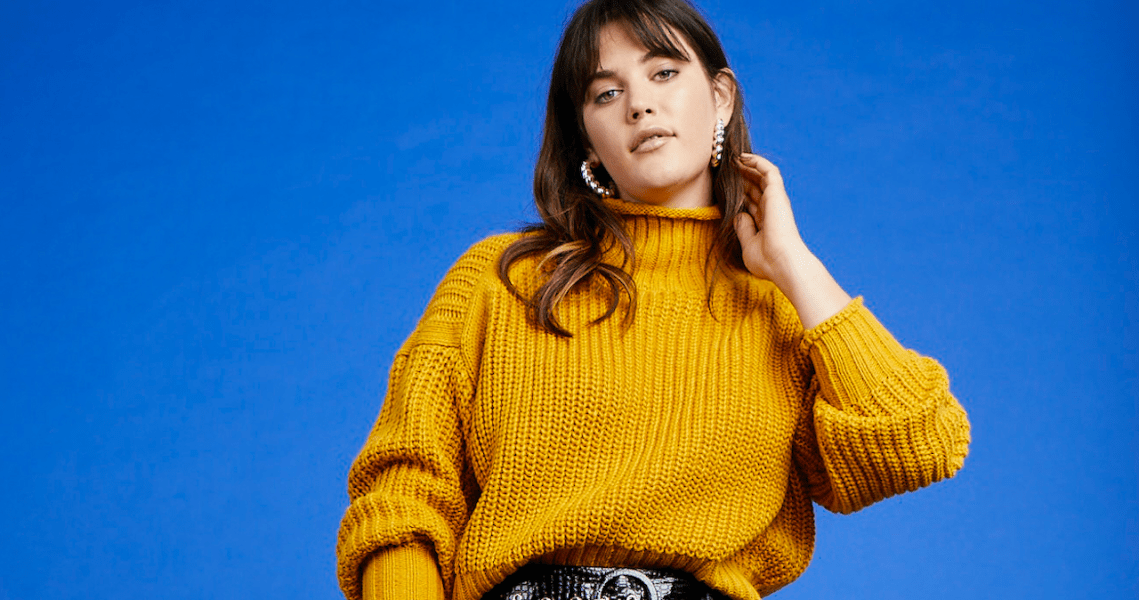Over the last year, Fullbeauty Brands has quietly been building a plus-size fashion empire.
In early 2023, the 120-year-old company owned 12 plus- and inclusive-size brands including Swimsuits For All and Roaman’s, which it had acquired over the decades. But in the last 12 months, it has added to its portfolio three DTC and digitally-native plus-size brands, including Cuup, the formerly Walmart-owned Eloquii and, most recently, Dia & Co. The acquisitions speak to FullBeauty’s continued growth, which reflects how brands from outside the plus-size space, like Old Navy and Walmart, are giving way to more specialized retailers.
According to FullBeauty CMO Bill Bass, the company planned to pursue acquisitions as a means of capturing a younger customer, but packing three acquisitions into one year wasn’t intentional.
“I may have preferred if we staggered them a bit more,” Bass said. “But it’s like buying a house. You have to be ready to make the purchase when it goes on the market.”
Bass said the rest of FullBeauty’s portfolio caters to an older customer. Often when brands sense that their customer is aging, they’ll change the brand to target a new audience, Bass said. But FullBeauty’s leadership felt doing so would alienate existing customers. Instead, the acquisitions of Eloquii, Cuup and Dia & Co. are meant to bring in what CEO Jim Fogarty called “the TikTok generation,” while leaving the rest of FullBeauty’s brands untouched. None of the deal sizes were disclosed, but Walmart bought Eloquii for over $100 million in 2018.
A major focus for FullBeauty’s strategy is what Bass calls “digital malls.” FullBeauty’s older brands including Roamans, Woman Within and Jessica London have individual online stores but each has several tabs at the top that direct to the other brands. Eloquii and Cuup have a similar setup, and Dia & Co.’s online store is set to be added to the shared digital storefront at the end of the month.
“As we look to grow and scale, Dia will vastly increase brand offerings in our digital mall,” Fogarty said of the new addition.
This consolidation has extended to Dia’s own acquisitions. After buying the plus-size retailer 11 Honoré last year, Dia integrated 11 Honoré’s digital store into a section on the Dia & Co. website just last week.
Lydia Gilbert, co-founder of Dia & Co., said she’s confident the acquisition by FullBeauty was the right move. “Combining the strength of the Dia & Co. brand and our offerings for the size inclusive sector with FullBeauty’s legacy experience, successful track record and strong business fundamentals will unlock further growth for the brand,” she said.
Customers can freely move between the different brands and bring their shopping cart with them, checking out items from all three brands at once. Bass said this idea, first implemented by Gap, is one that the brands sometimes chafe against.
“The fear from the brands sometimes is that we’re making it easier for people to leave the site,” Bass said. “But a really good conversion rate is 5%, so at best, you have 95% of people leaving without purchasing anything anyway. This way, when they do leave, they’re more likely to keep looking for what they want at one of our other brands.”
It’s here in the digital mall that having multiple brands within the same sector is a benefit, Bass said. While FullBeauty allows each brand to retain their creative and design identity, several brands offering products in the same general category means customers have full stores’ worth of additional options.
“You may think that people have $100 to spend and, if they spend $30 on one brand, they’ve only got $70 left to spend at one of our others,” Bass said. “But I’ve seen it here and in my time as an analyst at Forrester that, often, people end up spending more on both brands combined than they would have if they just shopped from one.”
FullBeauty is profitable with nearly $1 billion in annual revenue and 5 million active customers. While it has no specific brand targets at the moment, FullBeauty is still looking to build out its newest digital mall with more acquisitions soon. The plus sector has plenty of up-and-coming brands which could fit the bill, including Universal Standard or Loud Bodies. FullBeauty has been owned by Goldman Sachs and Oaktree Capital Management since 2019.
Bass said that FullBeauty is in a good position to continue to grow its share of the $81 billion plus-size market because of its over a century of experience and connections in the sector. This is especially true given the highly publicized failures of several non-plus brands to enter the market. The most notable was Old Navy, which ran a media campaign around its Bodequality initiative in 2021 only to kill the project a year later. Walmart also divested a major plus-size investment when it sold Eloquii to FullBeauty last year.
“Old Navy’s approach was disastrous,” Bass said. “This category isn’t one where you just take your straight-size clothing and scale it up. We’ve had decades to build up the expertise around serving this customer and we’re in the best position to do that.”




